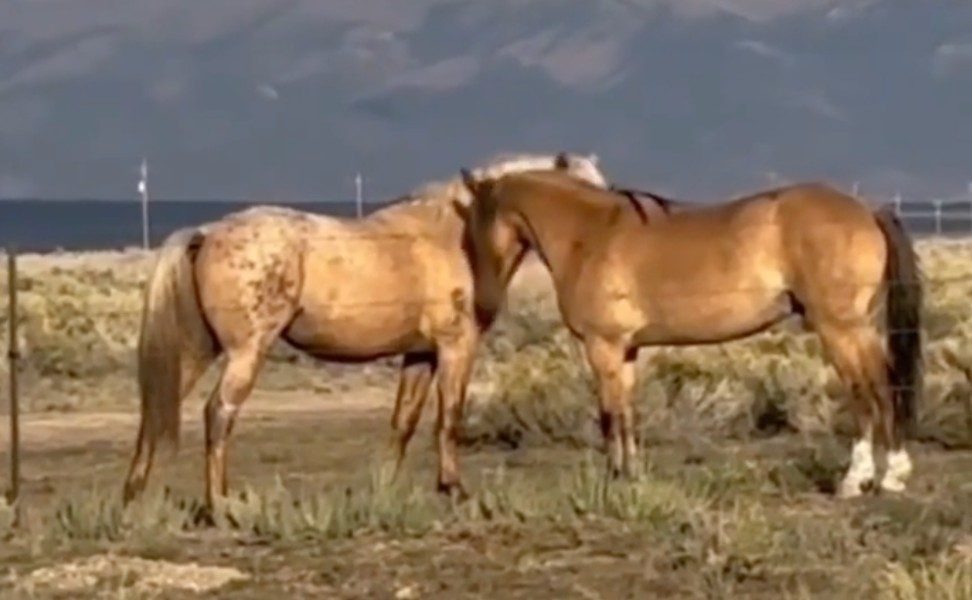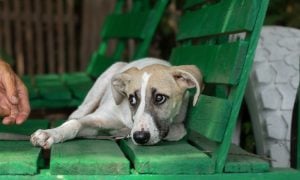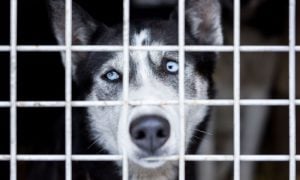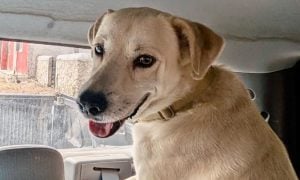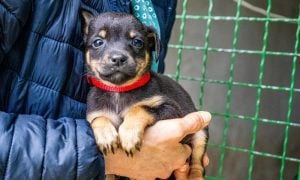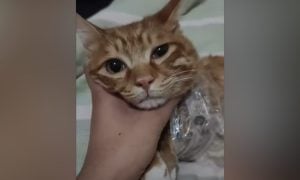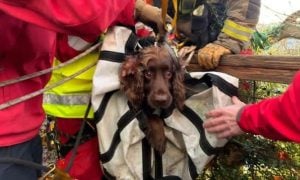Twenty wild horses, including several captured by the federal Bureau of Land Management (BLM), have once again been set free, on 480 acres of private property in northern Nevada, and will become part of a new study by indigenous advocates dedicated to proving the horses should have the right to roam.
Love Wild Horses, a California-based nonprofit, since 2010 has helped rescue and re-home at least 98 wild horses rounded up as part of the BLM’s routine “gather” operations. Seven of the horses in the new herd came from BLM operations, the organization told Lady Freethinker.
The organization said in a press release that many of the horses in the new herd are native wild horses reportedly bound for slaughter – including Cosmo and Fortuna, two of the three spirited horses the group released on Earth Day. Love Wild Horses told Lady Freethinker they caught the third horse, a buckskin now named Wakan, before he was surrendered to a livestock auction.
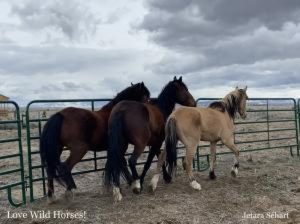
(Photo Credit Love Wild Horses)
Wakan’s name pays tribute the Lakota word for “sacred, holy, or spirit,” to honor the relationship between horses, the earth, and Native Americans — a balance the group says is being destroyed by the federal government’s brutal roundups.
“We need to put the government imprisoned wild horses back on the land, so they can once again heal and protect the land from climate change and wildfires,” said Chief Lee Plenty Wolf, a board member for Love Wild Horses. “We need to do this right away, because the horses can help us prevent wildfires and the damaging affects of climate change.”
The BLM says on its website that it conducts the gathers “to protect the health of the animals and health of our nation’s public rangelands” but does not address why grazing allotments for livestock are permitted within the same contested areas.
Love Wild Horses has long taken issue with that discrepancy.
“We need to tell Congress to put better policies in place to steward these beautiful animals that are a keystone species and play a vital role in protecting and sustaining grasslands and their ecosystem,” said President and Founder Jetara Séhart.
The herd of 20 rescued wild horses — whose herd was complete as of Sept. 16, and whom Love Wild Horses promises will live the remainder of their lives safe and forever free from slaughter — will be part of a free-ranging study to determine the role the horses have in agro-ecosystems, mitigating climate change, and preventing wildfires.
A land owner of Native American ancestry is partnering with the organization for the first study.
“There is a natural mutual understanding of the benefits for the land, the horses, and the surrounding community,” Séhart said. “There is a connection with our study that we will focus on weaving traditional ecological knowledge and science together to understand best how to save wild horses and their natural habitats, wild ones, and wild grassland ecosystems.”
The current study is in Phase 3, which involves completing the herd and planting native trees to create a forest, seeding of native grasses, and support for the acclimation of the herd, which will be followed by a fourth phase that involves healing the soil, she added.
“At this early stage, the first notable positive impact is showing in the appearance, the peaceful demeanors, and overall filling out and muscle development in the horses,” Séhart said.
Two Native undergraduate students will be hired for each study to help document findings, and the organization also plans for the herd to support Native communities.
“Wild horses have so much to teach humanity about our own humanity and our connection to wild lands,” Séhart said. “This study offers this opportunity, too, as we will be supporting Native spiritual and educational ceremonies, empowering healing for at-risk Native youth, and supporting elder wisdom and culture. In this time when so many are experiencing significant loss, especially in indigenous communities, the horses and these studies with hope will provide healing and empowerment.”
As for the three horses rescued last April, Séhart said they’re doing great.
“They are looking so magnificent in just the four and a half months that they’ve been running free in our supported equine re-wilding climate change wildfire mitigation-land healing study,” Séhart said. “It’s incredible how the small, newly introduced, and unacquainted groups of wild horses all accept each other near immediately and join up as one!”
Love Wild Horses keeps newcomers in a corral until the rest of the herd greets them, and both parties show calm, peaceful curiosity, Séhart said. When issues arise, they often resolve quickly.
“With the last release of the 5 Warm Spring native horses, Wakan ( a B.L.M. branded wild one from Utah), the herd leader or second in command, exhibited some boundary setting with Thor and testing of his boundaries and willingness to join up with the herd peacefully,” Séhart said. “The stand-off was over in a matter of seconds, and there was an energetic posturing of respect and confidence toward each other and a holding space of the other horses as Thor and Wakan figured things out.”
Every single equine life counts, and Lady Freethinker applauds this organization for honoring these animals and taking a dedicated stance toward keeping them wild and free. Those interested in keeping up with Love Wild Horses’ work can check out their Instagram, TikTok and Facebook accounts.
But there’s still so much to be done. If you haven’t already, please sign our petition urging the Bureau of Land Management to stop their cruel helicopter roundups of wild horses.
SIGN: Stop Cruel Helicopter Roundups That Are Killing Wild Horses

